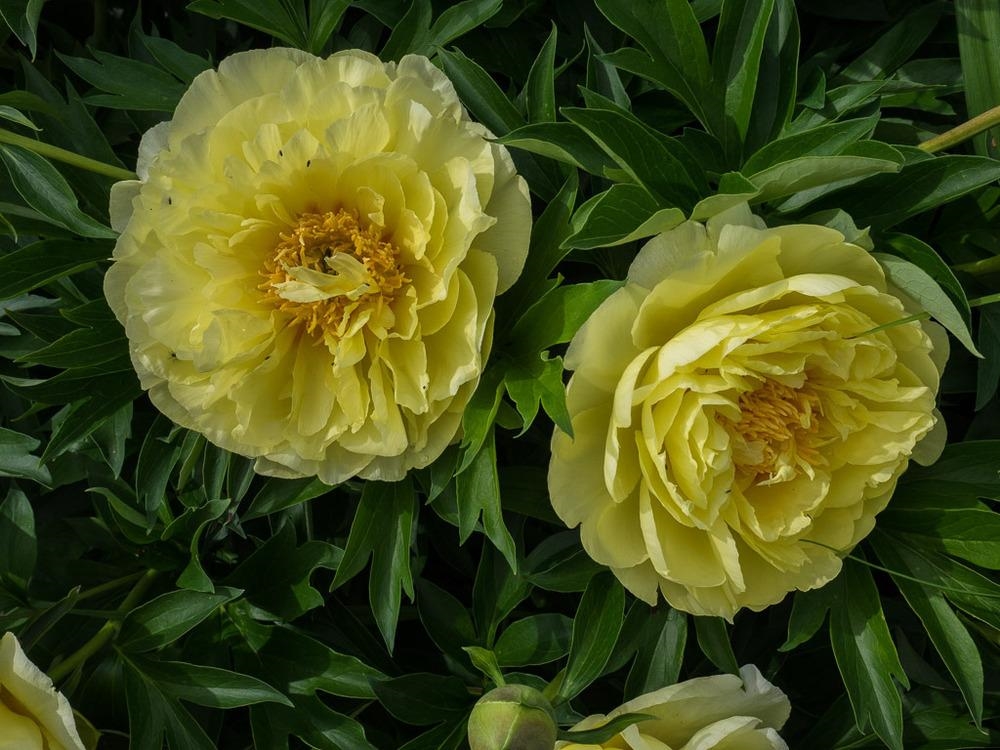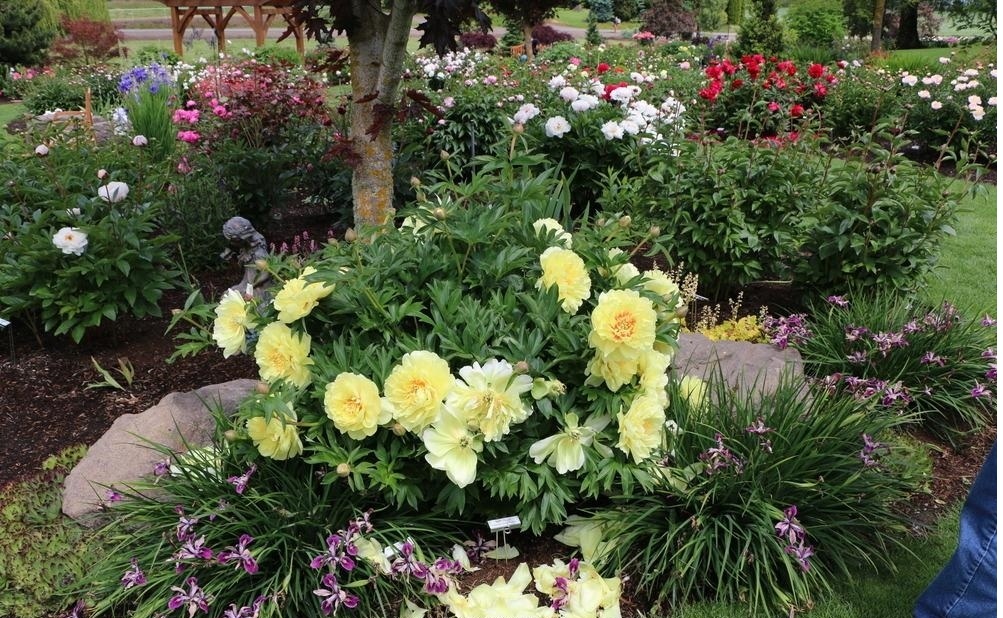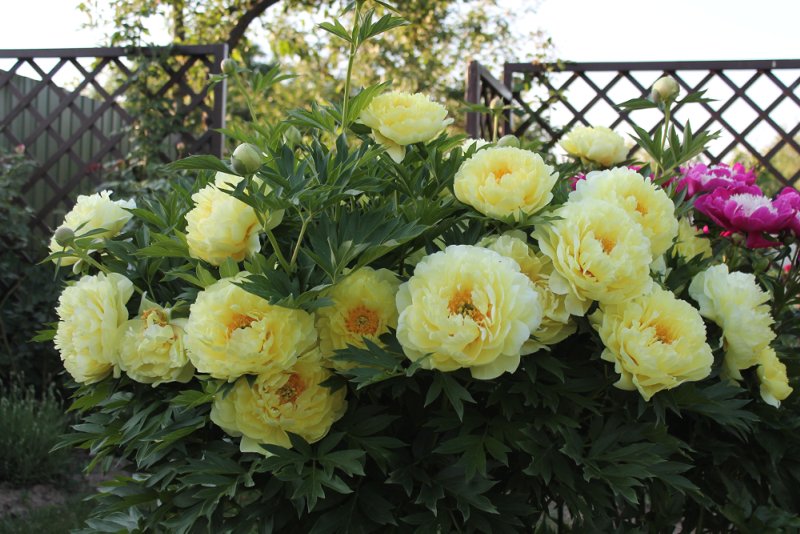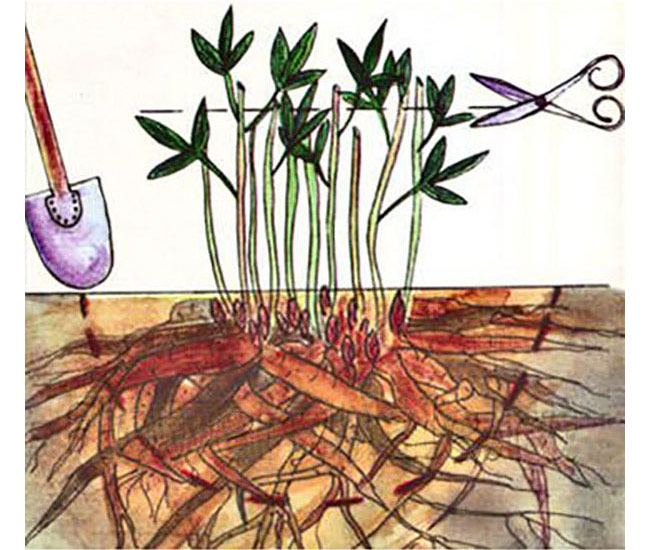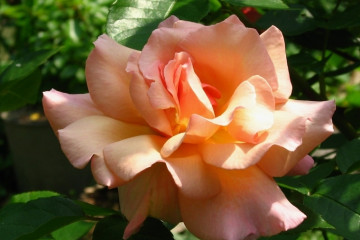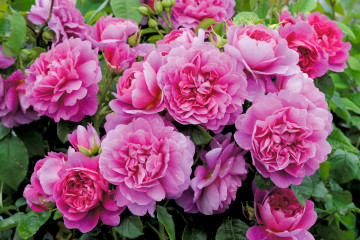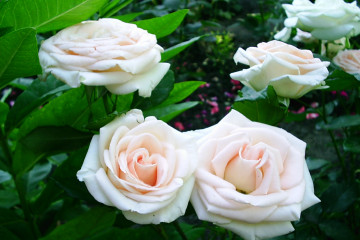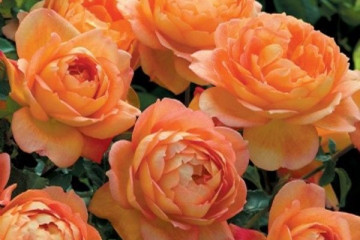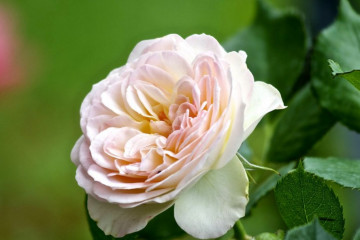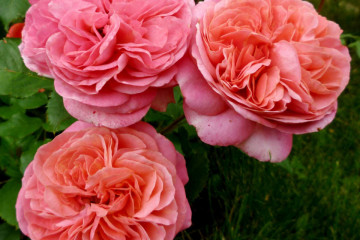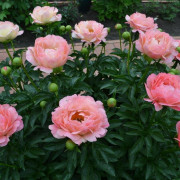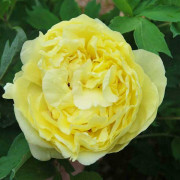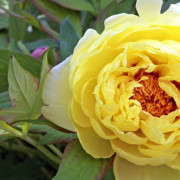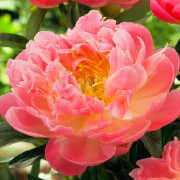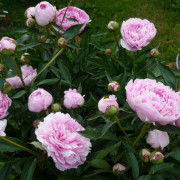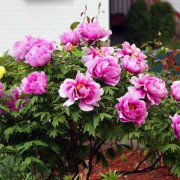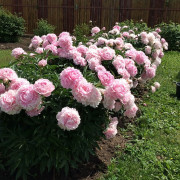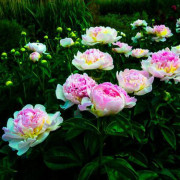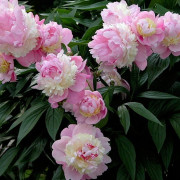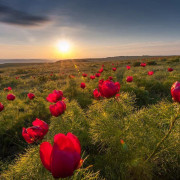Peony Bartzella (Paeonia Itoh Bartzella) - variety description
Content:
The Japanese are great connoisseurs of beauty. The world received many hybrids of flowers from the Land of the Rising Sun. Breeder Toichi Ito dedicated his life to breeding new varieties of peony. One of them is Bartzell's peony.
Peony Bartzella (Paeonia Itoh Bartzella) - what kind of variety, history of creation
The description of the peony Bartzell should start with the author of the variety. Scientist Toichi Ito has been working on a new strain for a long time. In the 40s of the last century, by crossing herbaceous and tree-like flowers, he received a beautiful peony, which now adorns flower beds on all continents. The Kinko and Kakoden cultivars gave birth to the Bartzell hybrid.
Toichi, however, did not complete the work, 1200 attempts were crowned with only six viable processes. After the death of the breeder, his apprentice and widow finished the experiment.
The yellow peony in the title immortalized the name of Bart's family pastor. And the varieties bred by the enthusiast are called Ito-peonies.
Description, characteristic
The flower gained wide popularity in the world in 1974. Description of peony Bartzella:
- The flower is semi-double, the petals are graceful. They are lemon-yellow at the edges, orange at the core. Diameter 20-25 cm. Tight buds bloom in early summer, bloom for a month. The amount depends on the age of the bush: the older it is, the more flowers there are. On average 60 pieces per plant.
- The bush is spherical, regular in shape, stable, grows without support.
- The stem is tree-like, strong at the base. Reaches 90-100 cm in height. Dies off for the winter.
- The sheet has high decorative properties. Large, carved. The color is dark green.
- The root system is fibrous, located close to the soil surface.
Advantages and disadvantages of the variety
The flower is grown in all climatic zones. Its advantages:
- not afraid of the shadow;
- tolerates frosts at -30 ℃;
- not demanding to care;
- grows on any soil for several years;
- retains decorativeness for many years;
- pleasant aroma.
Gardeners in Ito Bartzella's peony do not see any drawbacks. These include the high cost of planting material. Also, the fact that in the first year after planting the flower does not look so impressive. He reaches the peak of beauty in the third year.
Use in landscape design
The attractiveness of the Barthzell Ito peony is used in front gardens, gardens and parks. The options are:
- A lonely bush. The flower looks on the green lawn, near the garden bench, on the sides of the steps.
- Group landing. They use different decorative cultures, suitable in color and texture. Or in the company of fellows in red and white.
- Alpine slides and mixborders. Combine with evergreens and flowering shrubs. The slide should be large.
- Curbs. Peony yellow Bartzella is planted along the paths as an independent curb plant. He perfectly delimits the space in the garden, divides it into zones.
Growing a Bartzell flower
The flower does not cause trouble for gardeners. The main thing is to properly prepare for landing.
Selection of seedlings
Planting material (rhizome cuttings) is purchased in the stores of the agricultural complex. The tubers are sold in peat pots or as seedlings in containers.
Rhizomes are taken elastic, without rot, with 3-5 points of growth.There should be no damage or breaks on the tuber. Purchase peony seedlings Bartzell hybrid immediately before planting.
The culture is not propagated by seeds. The method is needed only for breeders. At home, this is not rational.
Boarding time
Ito's peony Bartzell hybrid is planted in the fall. September is the optimal time throughout Russia. There is still a month before frost, the plant will have time to take root and overwinter safely.
Site selection, soil preparation
The plant exuberantly manifests its decorative qualities in elevated sunny areas. Tubers are sensitive to excess moisture and rot. Therefore, the peony Itoh Bartzella is not planted in lowlands and places where groundwater is close.
They do not plant it near buildings so that the water from the roofs does not spoil the tubers. Near deaf metal fences, brick walls is also not a suitable place - the plant will suffer from heated material. Fruit trees are bad company for peonies.
The culture prefers fertile, loose soil. If there is increased acidity on the site, then they fix the matter with liming. Sand is added to clayey soils. Before planting, the plot is dug up, weeds and stones are removed.
Planting step by step
When the tubers and the plot are prepared, they begin planting. The process looks like this:
- Dig a hole 50x50 cm in size.
- Expanded clay is poured at the bottom to remove excess moisture.
- This is followed by a layer of sand.
- Fertile soil is poured onto it in a heap. It consists of peat and garden soil. Ash, superphosphate, dolomite flour are added.
- Examine the rhizomes. If there is rot, cut with a disinfected knife. The material is kept in manganese (2 g per 5 l of water).
- A seedling is placed in the center of the mound from the ground, the roots are straightened.
- Sprinkle with earth.
At the end of the action, the hole is watered, mulched with peat.
Peony care Bartzella Ito
Agricultural technology is not distinguished by its peculiarities. In order for the culture to please with long flowering, the following is being done.
Watering and loosening
In a hot summer, they are often watered. For each adult bush, 2 buckets of liquid are consumed. If the weather is wet, cool, moisturize less often. Excess moisture is useless for the flower. Water when the topsoil has dried out to a depth of 3-5 cm. At the time of flowering, the plant is watered more abundantly. Faded buds are removed. Spraying on the leaves is gratefully accepted by the culture.
Top dressing and transplanting
The Paeonia hybrid Ito Bartzella flower requires feeding three times per season. In the spring, he is given nitrogenous fertilizers for growing greenery. During the budding period, superphosphate and potassium formulations are suitable. At the time of flowering, superphosphate and potassium chloride are mixed.
Top dressing is combined with abundant irrigation. Agronomists do not recommend replanting during the growing season. Pruning is also not important for peonies. It is enough to cut off the dried flowers.
Pests and wintering
The plant is resistant to pests and diseases. Overflow leads to the formation of mold and mildew. The roots rot from waterlogging, the bush withers.
Before the cold weather, the tops are cut off. Hemp is mulched with sawdust or peat. Shelter is not required. If part of the rhizome decays, the plant will still leave in the spring and start growing.
Peony Bartzella is a great hybrid grown in Japan. Large flowers adorn flower beds and front gardens. It grows in one place for 30 years, does not require special agricultural technology. Propagated by dividing rhizomes.
